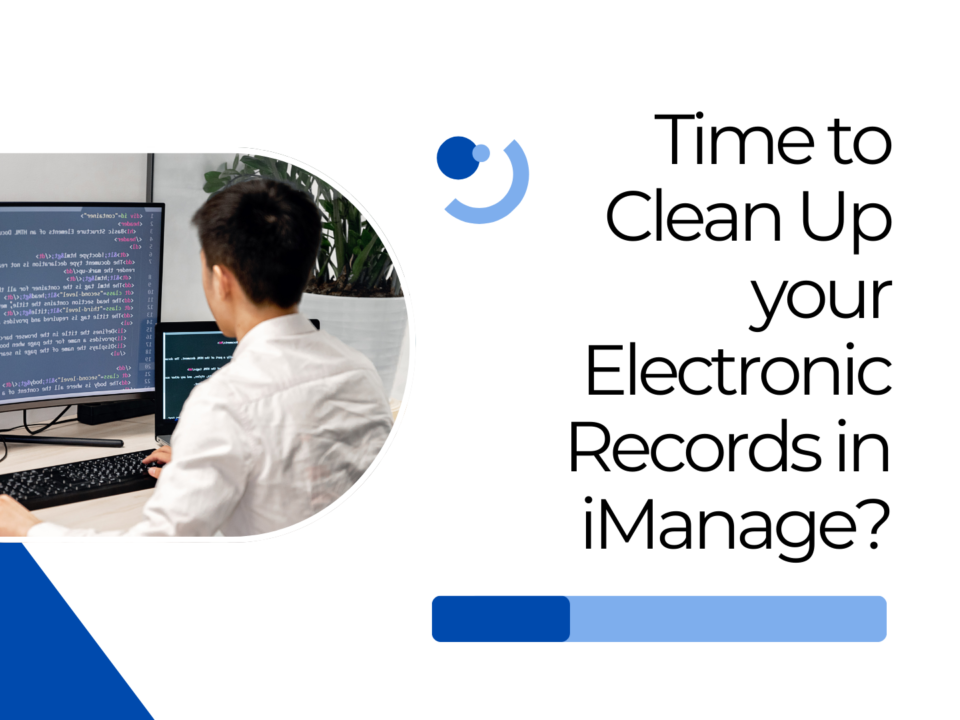Law Firm Matter File Best Practices for the 21st Century

Law firms face unique challenges when it comes to managing their client matter files. Firms have an ethical responsibility to safeguard client information, meaning data security needs to be a high priority, but at the same time, lawyers also need the ability to access information quickly and easily from a variety of locations.
Think of a lawyer sitting at a desk with piles of paper as high as their head around them. Or their assistant, frantically searching through the same piles for one document needed for a court appearance in 15 minutes. These images are easy to bring to mind because if you haven’t been there yourself, you have seen someone who has.
Setting up a secure, efficient records management system can save your law firm hundreds of hours and thousands of dollars. Each firm is unique, but there are some common best practices firms can implement to fit their individual situation.
Security Measures
Keeping sensitive matter files secure is the most critical part of a records management program for a law firm. Follow these tips to implement better security:
- Implement access security with the right balance of security enforcement versus administration of security settings.
- Record in your records management system who has physical files to maintain an accurate chain of custody of who has touched what files.
- Determine where official matter files should be stored and communicate the policy with all at the firm regularly. Is the file share where email should be stored? Do you want secretaries printing out emails in hard copy? (the answer of that last one is a big no).
Why Electronic?
Although it is rare to have a law firm that can be 100% electronic, your firm can move the storage of official matter files to electronic. Storing electronic data allows you to:
- Spend less money to house and manage paper. Reduce your offsite storage bills (storing boxes of paper fees, delivery fees, destruction fees). Reduce boxes piling up around the office (taking up valuable real estate and space for your employees). Reduce paper document storage onsite (less filing cabinets and paper on your desk). Reduce the amount of making sure your paper stays filed in order.
- Reduce time to retrieve documents. Instead of waiting hours or the next day to get access to a paper document, you can access it from your computer or mobile device
- Reduce the risk of destruction from fire or other disasters. In California, we had a whole community affected by wildfires where both homes and businesses were devastated by fire. A disaster can happen with little warning.
- Increase access to current technology. Utilize Court eFiling features. Keep up with new technology innovations and automation. Increase mobile access
- Increase information governance controls on your documents. Reduce risk and increase security. Better chain of custody records.
Don’t Forget Retention Schedules
An often-forgotten aspect of data security is getting rid of information once it is no longer needed. Hackers and thieves cannot steal what you do not have.
- Work with your records management team to develop a schedule for how long to keep your records. A common practice is for firms to keep their client matter files X number of years after a matter closes.
- If matters do not formally close at your firm, determine why that is the case. Has this only been viewed as a billing issue and not as a broader firm process issue?
I hope you can see why it’s so important to get a proper records management program in place. If you work for a law firm that doesn’t have a records management program in place, I can help. Schedule a 10-minute strategy session with me here.



